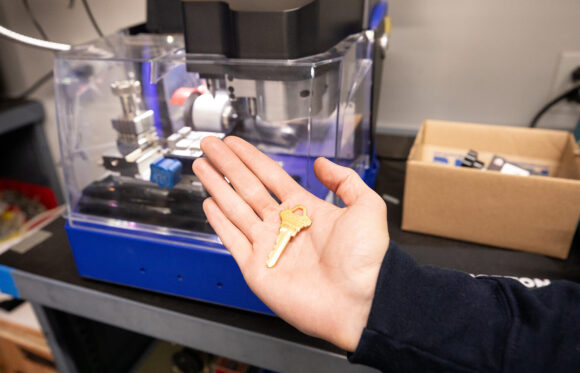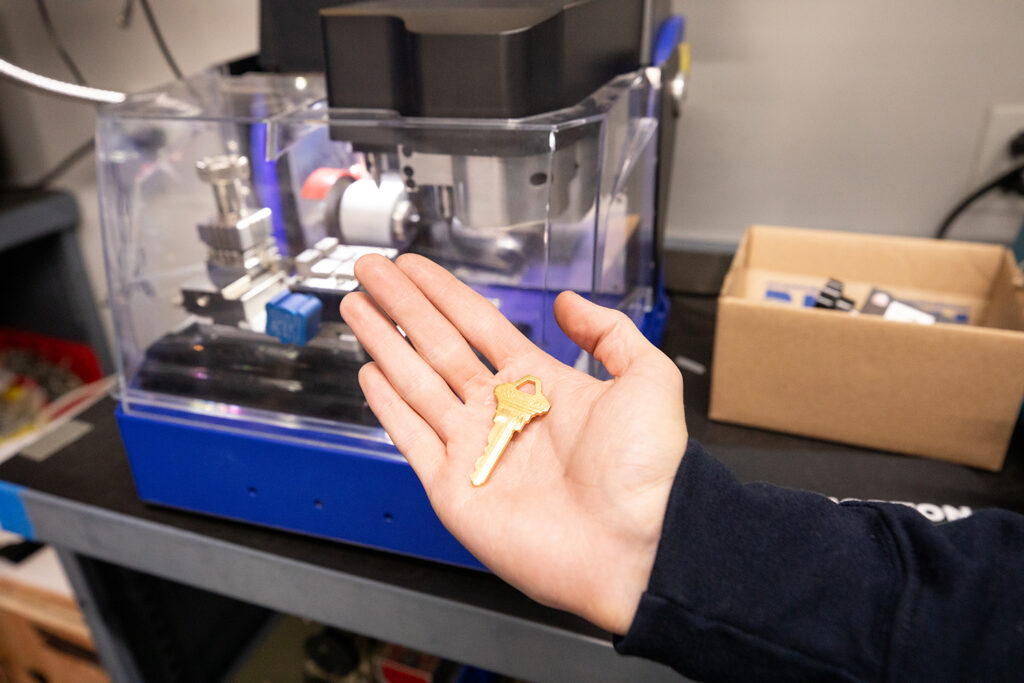Mastering Access: The Crucial Role of Locksmiths in Healthcare Security

Categories
Locksmithing & Security TechnologyWe all have heard of HIPAA guidelines and the need for cybersecurity measures to protect computerized patient records. However, physical, on-site security also plays a critical role for hospitals and healthcare facilities, not just for meeting HIPAA requirements, but also for keeping sensitive environments safe, which highlights the high demand for skilled locksmiths in hospitals.
There are several key reasons for hospitals to install and maintain robust physical security systems:
Keeping Patients Safe. Hospitalized patients are in an especially vulnerable situation as they deal with illness, injuries, or other health conditions. It is imperative for hospitals to prevent unauthorized individuals from patient areas where they might cause intentional or unintentional harm.
HIPAA Confidentiality and Privacy. Hospitals maintain physical records that contain sensitive personal and medical data that require access restrictions and secure storage.

Protecting Expensive Medical Equipment and Pharmaceuticals. Hospitals routinely use devices and equipment that are very expensive and can be prone to theft or damage, and certain medications can be especially tempting to thieves.
Emergency Preparedness Safety. When a disaster or emergency strikes, hospitals must be prepared to quickly secure entrances and exits and control access to protect patients, staff, and visitors.
Regulatory Compliance. In addition to HIPAA, there are a number of organizations, including the Joint Commission, CMS, and ADA that have levied certain security and safety requirements for hospitals. In addition, there are state and local building, fire, and life safety codes, among others. Meeting these requirements is mandatory to not only ensuring quality of care, but maintaining accreditation.
So, how do locksmiths support a clean and safe hospital environment? In addition to the careful design and installation of physical security measures, the type of equipment used plays a big role. Keeping cleanliness, traffic patterns, and type of use in mind are key.
Emerging security technology has yielded some smart solutions for today’s hospitals:
Antimicrobial Coatings. It is possible to purchase locks and door hardware with a special coating that resists the growth of bacteria. This technology is being expanded by some manufacturers to include the door and the doorjambs.
Touchless Switches. By incorporating infrared (IR) or microwave technology, touchless switches enable a contact-free activation of a door, reducing the chance of unwanted microbes or bacteria from physical touch.
Power Door Operators. To simplify the movement of patients who are on a gurney, or who use a wheelchair or walker, power doors are a great barrier-free solution. And, by keeping the door open and out of the way, there’s less chance of physical damage to the door or equipment.
Anti-ligature Hardware. Some hospitals, especially those treating psychiatric disorders, need to consider protecting the patient from using hardware for self-harm. Anti-ligature knobs and levers are designed to prevent tying and anchoring anything to them.
Refrigerator Locks and Keys. Keeping certain medications, especially narcotics, free from unauthorized access is crucial for hospitals. Installing specialized locks and refrigerators that only allow authorized access and can provide an audit trail helps prevent theft while acting as an extra check on proper dispensing to patients. Hospital security is a growing area with many different aspects to consider.
Interested in learning more about the locksmithing program at NBSS and other career opportunities in this in-demand career field? We invite you to get in touch with us.

